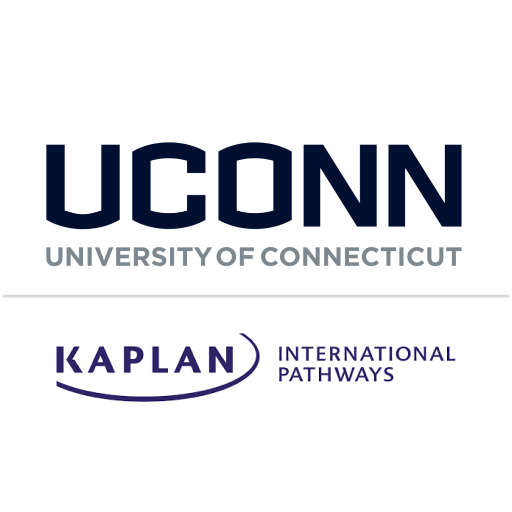• Study in Canada
Atlantic Provinces of Canada- Educational and Career Prospects
4066 Reads
3 min Read
Atlantic Canada is known for its balance between work and play. Shorter commute times, affordable cost of living and natural beauty all around, and students enjoy the quality of life they find on the East Coast. Atlantic Provinces of Canada has the oldest and most renowned educational institutions with a strong education system and highly qualified faculty.
Why Should one Select Atlantic Institutions to Study?
High-Quality Education
Affordable Education and Living Cost
World Class Universities
Educational Services in Atlantic Provinces of Canada
The Skills for Success Framework
Atlantic Provinces of Canada
Atlantic Provinces for International Students
New Brunswick
Why Study in New Brunswick?
| Universities/Colleges | Programs/Courses |
| Crandall University | • Bachelor of Arts in Biblical Studies • Bachelor of Arts in Communication Arts-Theatre |
| Mount Allison University | • Bachelor of Arts and Science in Health Studies • Bachelor of Arts in American Studies |
| New Brunswick Community College | • Certificate in Administrative Professional-Health Services • Certificate in Administrative Professional |
| Oulton College | • Diploma in Business Management and Entrepreneurship • Diploma in Child and Youth Care |
| St. Thomas University | • Bachelor of Arts in Anthropology • Bachelor of Arts in Catholic Studies |
| University of New Brunswick | • Bachelor of Arts in Gender and Women Studies • Bachelor of Arts in International Development studies |
Nova Scotia
Why Study in Nova Scotia?
| University/College | Programs/Courses |
| Acadia University | • Bachelor of Applied Computer Science • Bachelor of Applied Science in Engineering |
| Cape Breton University | • Bachelor of Arts • Bachelor of Arts and Community Studies in Mikmaq Studies (Co-op) |
| University of New Brunswick | • Bachelor of Art in Gender and Women Studies • Bachelor of Arts in Classics |
| Mount Saint Vincent University | • Bachelor of Arts in Canadian Studies • Bachelor of Arts in Child And Youth study |
| St. Francis Xavier University | • Bachelor of Arts and Science in Climate and Environment (Co-op Optional) |
Prince Edward Island
Why Study in Prince Edward Island?
| University / College | Programs/ Courses |
| University of Prince Edward Island | • Bachelor of Applied Arts in journalism, general Specialization • Bachelor of Applied Science in Radiography • Bachelor of Arts in Anthropology • Bachelor of Arts in Applied Communication, Leadership, and Culture • Bachelor of Arts in Canadian Studies • Bachelor of Arts in Diversity and Social Justice Studies • Bachelor of Arts in Economics |
Newfoundland and Labrador
Why Study in Newfoundland and Labrador?
| University / College | Programs / Colleges |
| Keyin College | Diploma in Personal Care Attendant |
| Memorial University of Newfoundland | • Bachelor of Arts in English • Bachelor of Arts • Bachelor of Arts (Honours) in Economics • Bachelor of Arts in Anthropology • Bachelor of Arts in Archaeology (Co-op) • Bachelor of Arts in Classics |
Career Prospects in Atlantic Provinces of Canada
Conclusion
FAQ
Get great articles direct to your inbox
The latest news, articles, and resources, sent straight to your inbox every month.
Popular Universities to Study Abroad
World class education waiting for you.

Stevens Institute of Technology
New Jersey, USA • 66 Programmes
Tuition Fee : USD 63000-63500 / year

Kaplan Group - University of Connecticut - Stamford Campus
Connecticut, USA • 20 Programmes
Tuition Fee : USD 37000-38000 / year

University of South Wales - Glyntaff Campus
Wales, UK • 46 Programmes
Tuition Fee : GBP 13000-14000 / year

Cambrian College - Toronto Campus
Ontario, Canada • 3 Programmes
Tuition Fee : CAD 17000-19000 / year

Suncrest College - Yorkton Campus
Saskatchewan, Canada • 9 Programmes
Tuition Fee : CAD 17000-24500 / year

Education Centre of Australia (ECA) Group - College of Health Sciences - Sydney Campus (Parramatta)
New South Wales, Australia • 1 Programmes
Tuition Fee : AUD 0-0 / year

Shorelight Group - Louisiana State University
Louisiana, USA • 169 Programmes
Tuition Fee : USD 29000-30000 / year

Popular English Language Proficiency Exams
Blogs and Articles
Curated content to keep you updated on the latest education trends, news and more.
Ireland Student Visa Process 2025 | Step-by-Step Guide & Requirements
Updated on • Apr 19,2025 03:30 PM IST • Ireland
ACT vs. SAT: Which One to Choose?
Updated on • Apr 14,2025 01:46 PM IST • Study Abroad
Updated on • Apr 11,2025 05:53 PM IST • IELTS
Backlog Certificate: A Complete Guide
Updated on • Apr 11,2025 01:47 PM IST • Study Abroad Guidance
PTE Score Chart 2025: PTE Exam Scoring System & Calculation
Updated on • Apr 09,2025 05:37 PM IST • PTE
Master's in Computer Science in the USA
Updated on • Apr 08,2025 05:59 PM IST • USA
Top Trending MBA Specialisations in 2025
Updated on • Apr 08,2025 04:47 PM IST • Study Abroad
Describe Your Hometown IELTS Speaking Part 1 Topic
Updated on • Apr 07,2025 05:50 PM IST • IELTS
How to Get a Job in USA in 2025
Updated on • Apr 07,2025 03:19 PM IST • USA
Highest Paying Jobs in the World
Updated on • Apr 01,2025 05:31 PM IST • Study Abroad
Student Life in Ireland in 2025
Updated on • Mar 29,2025 05:50 PM IST • Ireland
Top Public Universities in Germany
Updated on • Mar 26,2025 04:33 PM IST • Germany
Top Universities for Masters in Ireland in 2025
Updated on • Mar 25,2025 04:36 PM IST • Ireland
Cost of Living in Singapore for Indian Students in 2025
Updated on • Mar 22,2025 11:57 AM IST • Singapore
PTE vs IELTS : Know the Difference and Which is Easier?
Updated on • Mar 21,2025 03:38 PM IST • IELTS
Updated on • Mar 20,2025 10:19 AM IST • Germany
Updated on • Mar 12,2025 11:20 AM IST • Ireland
Updated on • Mar 11,2025 01:18 PM IST • USA
Best Countries to Study Abroad for Indian Students in 2025
Updated on • Mar 08,2025 01:24 PM IST • Study Abroad
Updated on • Mar 05,2025 12:19 PM IST • UK
Related Blogs and Articles
A little effort to provide an authentic and reliable content for keen readers!!
Updated on • 25-01-2025 • Study in Canada
Updated on • 24-01-2025 • Study in Canada
Canada Student Visa Interview Questions
Updated on • 23-01-2025 • Study in Canada
Updated on • 15-01-2025 • Study in Canada
September/Fall Intake Canada 2025: Timeline, Universities & Admission Requirements
Updated on • 03-01-2025 • Study in Canada
Updated on • 02-01-2025 • Study in Canada
Life in Canada as an Indian Student
Updated on • 26-12-2024 • Study in Canada
Timeline for Winter (January) Intake in Canada 2025
Updated on • 21-12-2024 • Study in Canada
Updated on • 05-12-2024 • Study in Canada
Best Cities to Study in Canada
Updated on • 21-11-2024 • Study in Canada
Bachelor of Architecture in Canada
Updated on • 13-11-2024 • Study in Canada
Job Opportunities in Canada for Indians: Salaries, Best Job Sites & More
Updated on • 09-10-2024 • Study in Canada
Canada Study Visa - Fee, Requirements, How to Apply & More
Updated on • 05-10-2024 • Study in Canada
Study intakes in Canada - Fall, Winter & Summer
Updated on • 03-10-2024 • Study in Canada
Letter of Recommendation (LOR) for Canada: University Requirements, Sample and Writing Tips
Updated on • 26-09-2024 • Study in Canada
New Rules & Regulations in Canada for International Students
Updated on • 31-08-2024 • Study in Canada
Public Transportation in Canada for International students
Updated on • 29-08-2024 • Study in Canada
Healthcare in Canada for international students
Updated on • 27-08-2024 • Study in Canada
Courses in Canada for International Students
Updated on • 10-08-2024 • Study in Canada
Top PG diploma Colleges in Canada - Courses, Eligibility & More
Updated on • 06-08-2024 • Study in Canada












